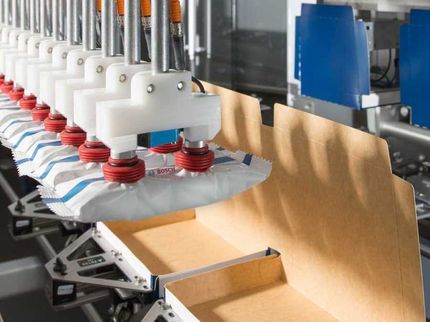DHBW Karlsruhe students test digital solution for food coops
Field test and future outlook: experiences, challenges and perspectives of a practical student research project
Advertisement
In a field test, students of computer science at the Baden-Wuerttemberg Cooperative State University (DHBW) Karlsruhe had to face members of a foodcoop from almost 20 households with their app at the end of their coursework. A stress test not only for the app, but above all for the students, which provided valuable insights in terms of user-centric software design for the digitalization of a foodcoop.
What are foodcoops?
Foodcoops are self-organized (non-commercial) purchasing communities with the aim of buying organic food as regionally as possible, reducing packaging waste and travel distances, and regaining control over the supply.
A high degree of mutual trust and pre-ordering of fresh produce make it possible to do without typical retail functionalities, thus saving costs and distributing 100% of the food.
Digitizing foodcoops
The required administrative processes, which are carried out purely on a voluntary basis, have grown over decades and are highly optimized, but are still essentially based on "paper and pencil". Their digitalization promises added value, e.g. through the possibility of adapting the members' online ordering process to externally specified container sizes. For example, if an organic farmer only supplies containers of ten heads of lettuce of one variety, it is complicated to agree on how many containers should be ordered.
But digitalized processes could also save time and make processes less error-prone when it comes to billing or dealing with too much or too little delivered goods.
Web-based technology is already used by individual food coops, but available tools are too inflexible to meet the specific requirements of a food coop.
New start as part of student research projects
So it made sense to start from scratch with the help of students on a greenfield site. Dr Oliver Rettig, project manager in the Robot and Human Motion Lab (RaHM Lab) at DHBW Karlsruhe, initiated the project to digitalize food coops back in 2020 out of a personal interest in sustainability issues. Over the course of five student research projects to date, ten students have worked hard to investigate numerous software and organizational aspects and develop a great deal of code. One challenge was to familiarize the subsequent student research groups with the increasingly complex codebase. In the first few attempts, this was not at all successful and existing code had to be completely discarded. With increasing experience with consecutive study work, which was also gained in particular in RaHM-Lab projects, an increasingly smooth workflow developed. The perseverance and continuous work on the topic has paid off: with the recently completed field test, all digitized sub-processes and their interaction could now be tested for the first time by the members of a foodcoop in the immediate vicinity of the DHBW Karlsruhe.
What's next?
The field test has shown that technically not much is missing to bring the app into practice. However, this step can only succeed if the project moves beyond the scope of the student research projects and becomes a lively open source project with external support and continuous further development. A final task that can be tackled by DHBW students in October of this year as part of another student research project. Two members of the last successful study group have already indicated that they would like to help with this in their free time. It is eagerly awaited how the app will develop and how it will be used in food coops.
Note: This article has been translated using a computer system without human intervention. LUMITOS offers these automatic translations to present a wider range of current news. Since this article has been translated with automatic translation, it is possible that it contains errors in vocabulary, syntax or grammar. The original article in German can be found here.
































































